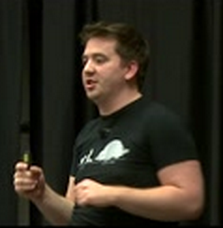CppCon 2014 Efficiency with Algorithms, Performance with Data Structures--Chandler Carruth
 Have you registered for CppCon 2015 in September? Don’t delay – Early Bird registration is open now.
Have you registered for CppCon 2015 in September? Don’t delay – Early Bird registration is open now.
While we wait for this year’s event, we’re featuring videos of some of the 100+ talks from CppCon 2014 for you to enjoy. Here is today’s feature:
Efficiency with Algorithms, Performance with Data Structures
by Chandler Carruth
Summary of the talk:
Why do you write C++ code? There is a good chance it is in part because of concerns about the performance of your software. Whether they stem from needing to run on every smaller mobile devices, squeezing the last few effects into video game, or because every watt of power in your data center costs too much, C++ programmers throughout the industry have an insatiable desire for writing high performance code.
Unfortunately, even with C++, this can be really challenging. Over the past twenty years processors, memory, software libraries, and even compilers have radically changed what makes C++ code fast. Even measuring the performance of your code can be a daunting task. This talk will dig into how modern processors work, what makes them fast, and how to exploit them effectively with modern C++ code. It will teach you how modern C++ optimizers see your code today, and how that is likely to change in the coming years. It will teach you how to reason better about the performance of your code, and how to write your code so that it performs better. You will even learn some tricks about how to measure the performance of your code.


 Have you registered for CppCon 2015 in September? Don’t delay –
Have you registered for CppCon 2015 in September? Don’t delay –  An interesting approach to sorted search:
An interesting approach to sorted search: Have you registered for CppCon 2015 in September? Don’t delay –
Have you registered for CppCon 2015 in September? Don’t delay –  More rapid-fire “now write this using lambdas” problem-solution drill with Sumant Tambe:
More rapid-fire “now write this using lambdas” problem-solution drill with Sumant Tambe: